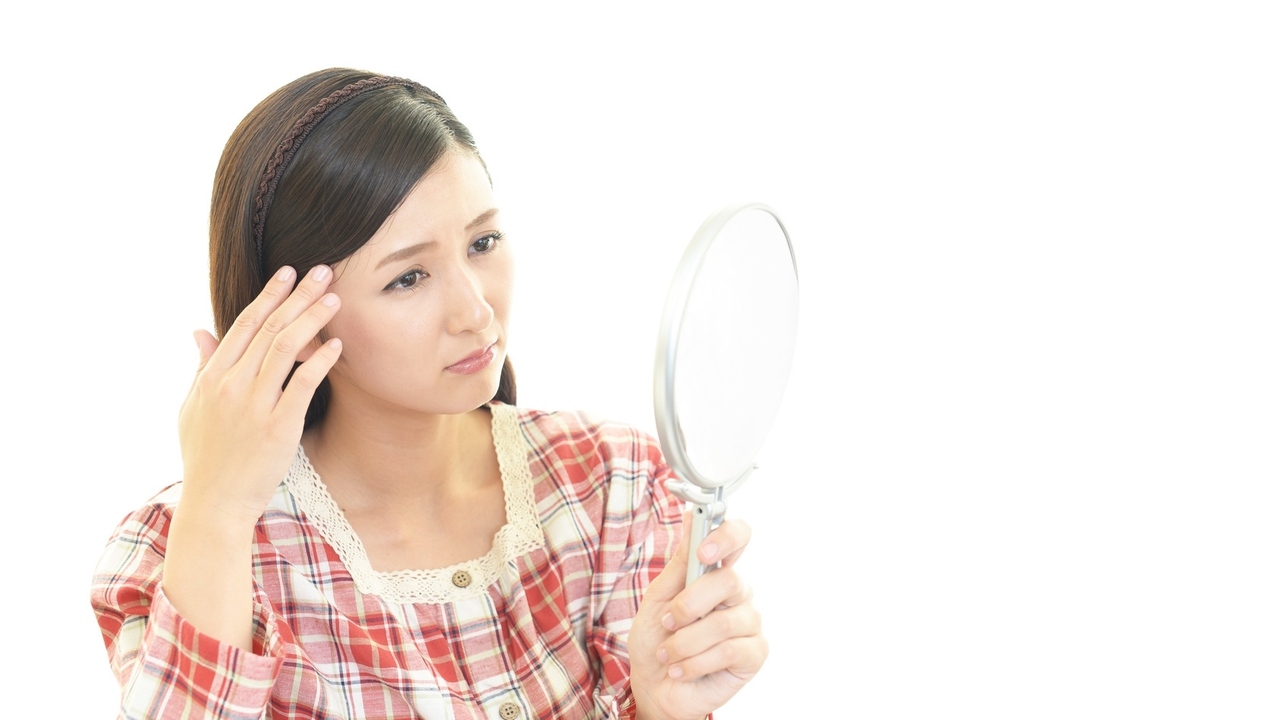 suna/Fotolia
suna/Fotolia
Most of us have done it — gone to bed with makeup still on our face. It’s no big deal, right?
Or is it? What really happens to our skin when we sleep in makeup?
Makeup’s purpose is to make us look beautiful, but wearing it overnight could make us just the opposite.
“Sleep is a restorative time for the skin, and if oil glands and pores are blocked by the day’s makeup remains, the results can be disastrous,” Melanie Palm, MD, MBA told InStyle.
Those results are acne, clogged pores, irritated skin and potential eye problems.
Pores cover our skin. That allows us to sweat, but pores also secrete sebum. This waxy substance moisturizes and protects the skin. Another sebum job is removing dead skin cells and other irritants from pores.
Wearing makeup during sleep clogs pores, and sebum can’t do its job. Sebum builds up, making way for acne, according to HowStuffWorks.com.
Furthermore, most people touch their face all day long, leaving it very dirty. All that bacteria on your skin makes it susceptible to acne. Microcomedone — first stage of acne — can begin to form.
Washing your face before bed gets rid of bacteria and oil, preventing breakouts and clogged pores, said Sleep.org.
Another possible consequence of not washing your face before bed: premature aging and wrinkles. Each day, our skin is exposed to a high amount of oxidative stress, according to Dr. Erin Gilbert, a dermatologist based in New York City. Then the skin can’t fight off free radicals.
Free radicals from the environment, normally from pollution, stay on the skin. Free radicals can cause the breakdown of healthy collagen, which eventually leads to fine lines and wrinkles.
Not washing your face before sleep means your skin is fighting off free radicals all night. So your skin doesn’t recover as normal, which can lead to premature aging.
Sleeping in makeup doesn’t just lead to wrinkles. You could get a rash.
GoodHousekeeping.com wrote that makeup often contains irritants like dyes and perfumes that, when left on the skin for long periods of time, can cause inflammation.
Eye makeup comes with its own troubles, if left on overnight.
It’s possible that eyeliner and mascara be rubbed by a pillow and get in the eyes. That can lead to major eye irritation. Repeatedly sleeping in your eye makeup could result in tiny hair follicles and oil glands on eyelids getting clogged. When clogged, bacteria can build up and cause inflammation, said HuffingtonPost.com.
That inflammation can eventually result in small bumps called hordeolums or styes. Sometimes these need to be removed by your doctor, Sleep.org said.
“Sleeping with eye makeup on puts you at risk for corneal abrasions – due to particles irritating the surface of the eye – and inflammation around the delicate tissue of the eye,” Palm told InStyle.com.
Now we know. It is a big deal to our eyes and skin that we wash off makeup before bed.
Reviewed March 10, 2016
by Michele Blacksberg RN
Edited by Jody Smith
Escobar, Sam. "6 Awful Things That Happen When You Sleep in Your Makeup." Good Housekeeping. 2015. Web. 06 Mar. 2016.
http://www.goodhousekeeping.com/beauty/anti-aging/a35556/why-is-sleeping-in-makeup-bad
Faragalli, Samantha. "Here's Why You Seriously Shouldn't Sleep With Makeup On." InStyle.com. Web. 06 Mar. 2016.
http://www.instyle.com/news/truth-behind-sleeping-with-makeup-on
Kitchens, Simone. "Is It Really That Bad To Sleep In Makeup? Dermatologists Tell Us The Truth (PHOTOS)." The Huffington Post. TheHuffingtonPost.com. Web. 06 Mar. 2016.
http://www.huffingtonpost.com/2012/12/18/sleep-in-makeup_n_2289084.html
"Washing Your Face Before Bed | Sleep.org." SleepOrg. Web. 06 Mar. 2016.
https://sleep.org/articles/washing-your-face-before-bed
Whitmore, Elizabeth. "Is It Bad to Sleep with My Makeup On?" HowStuffWorks. 2009. Web. 06 Mar. 2016.
http://health.howstuffworks.com/skin-care/cleansing/tips/sleep-with-makeup-on.htm





Add a CommentComments
There are no comments yet. Be the first one and get the conversation started!